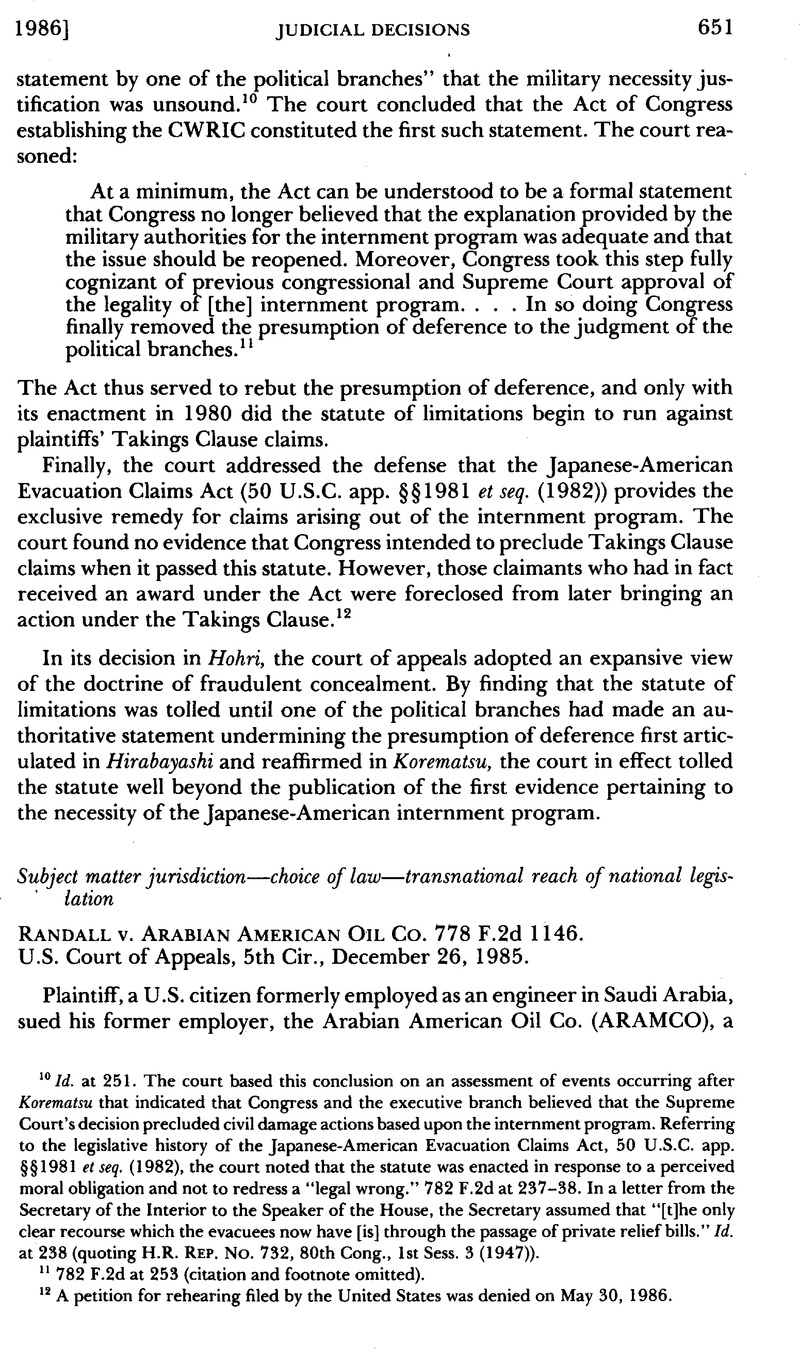No CrossRef data available.
Published online by Cambridge University Press: 27 February 2017

1 The parties did not dispute that the court had in personam jurisdiction over the defendant.
2 778 F.2d 1146, 1150.
3 Id. at 1151. The parties did not dispute that Saudi Arabian substantive law provided the rule of decision in the case.
4 Id. (citation and footnote omitted).
5 U.S. Const, art. IV, §1. See, e.g., Crider v. Zurich Ins. Co., 380 U.S. 39 (1965); Tennessee Coal, Iron & R.R. Co. v. George, 233 U.S. 354, 360 (1914) (“[A] State cannot create a transitory cause of action and at the same time destroy the right to sue on that transitory cause of action in any court having jurisdiction”).
6 778 F.2d at 1152. In this respect, the court observed that it is left to the law of the forum to determine whether a law is substantive or procedural.
7 Id. at 1153.
8 The court also rejected defendant’s final argument that the act of state doctrine required recognition of the exclusive jurisdiction provision, noting that any concerns “regarding judicial interference with diplomatic relations are not at all implicated in this case.” Id.